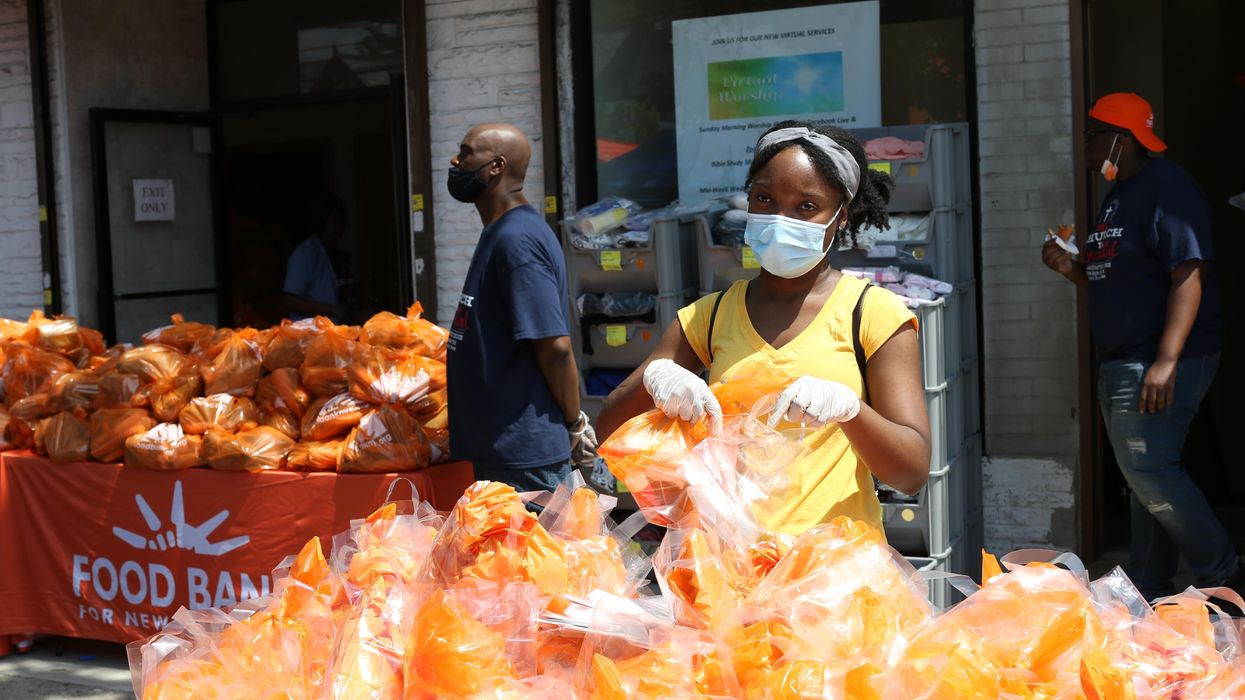More than 77 million Americans volunteer a total of 6.9 billion hours a year doing everything from fighting fires to raising funds for cancer research. These efforts help others and support communities. But volunteering also tends to benefit the volunteers themselves in at least four different ways.
1. Boosting your health, especially if you assist others
Volunteering has long been associated with good mental and physical health, particularly for older people. In a long-term study, researchers at the University of Wisconsin found that volunteering was linked to psychological well-being, and the volunteers themselves said it was good for their own health.
While anyone can benefit from volunteering, people who are the least connected to others tend to benefit the most. In fact, the benefits are so strong that researchers have suggested public health officials educate the public to consider volunteering as part of a healthy lifestyle.
One study in particular looked into which kind of volunteering may be best for your health. When a team of social scientists combed through data collected in Texas, they found that people who volunteered in ways that benefited others tended to get a bigger physical health boost than volunteers who were pitching in for their own sake. They also benefited in terms of their mental health, such as by experiencing fewer symptoms of depression and becoming more satisfied with their lives.
2. Making more connections
Volunteering, especially when it's done on a regular basis, can help you make new acquaintances. Whether you volunteer for an organization on a daily, weekly or monthly basis, over time you are bound to develop strong relationships, typically with other volunteers and staff members.
Regular volunteers may get these benefits to a greater degree than people who volunteer sporadically, known as episodic volunteers. Consider this: Handing out water at a fundraising run in April and then helping bag groceries to give away in November is surely easier to squeeze into a busy schedule than volunteering regularly in an office. But those more convenient activities aren't as likely to help you build relationships over time. In other words, consistency matters.
There are benefits and drawbacks to every type of volunteering. For example, volunteering once in a while is often easy to schedule and is something families or friends can do together. However, volunteers who pitch in occasionally may not feel very connected to the mission of the nonprofits they support or get to know many other volunteers.
Regularly volunteering, on the other hand, makes it more likely that you will develop a deep relationship to the cause and to other staff and volunteers. However, this kind of volunteering requires a longer-term and bigger time commitment. It can also become frustrating if the volunteer's duties aren't a good fit for them.
Still, if people are willing to work toward finding the right fit and making time in their schedules, volunteering on a regular basis can help them get more out of their efforts, including new friends and acquaintances.
3. Preparing for career moves
When volunteers gain and strengthen skills and meet more people, it can help them find new paid work by honing their social and job skills and expanding their professional contacts.
Especially if you're unemployed or eager to get a new job, you may want to volunteer in ways that are more likely to fill gaps in your resume or help you network with people who can help advance your career. For example, you can learn leadership and governance skills by volunteering on a board of directors at your local food pantry and, at the same time, network with other board members.
Alternatively, you can volunteer for an organization in your field, whether it's health care, child care or accounting, as a way of staying current and active while looking for work.
Including volunteer work on your resume can also signal to a prospective employer that you're community-minded, self-motivated and willing to go above and beyond. As I often see with my students who volunteer, close relationships with nonprofit staff can lead to job referrals and glowing letters of recommendation.
4. Reducing some risks associated with aging
Older people who engage in mentally stimulating leisure activities on a regular basis may have better memory and executive function than those who don't, according to an analysis of related studies.
And because volunteers may need to tackle new problems, interact with clients and staff or drive to a new location, volunteering can be a highly stimulating leisure activity.
Volunteering can also help older people feel valued. For example, nonprofits can encourage older volunteers to become mentors – giving them a chance to impart what they've learned from their life and career experiences.
Visit Volunteer.gov and VolunteerMatch.com or connect with a community foundation, nonprofit resource center and a regional United Way to find volunteer opportunities.
This article is republished from The Conversation under a Creative Commons license. Click here to read the original article.
![]()



















Marco Rubio is the only adult left in the room